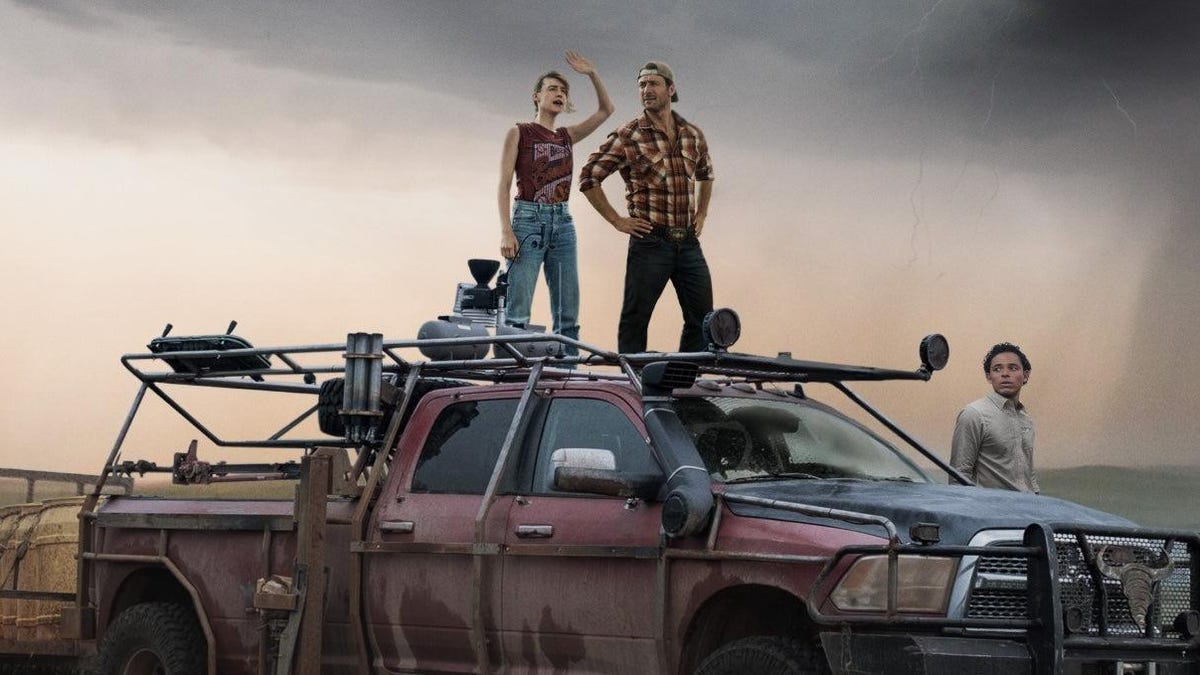
Director Lee Isaac Chung’s choice of Twisters as the follow-up to his Oscar-nominated Minari was surprising at first—but he’s since spoken about why he pivoted from family drama to tornado-fueled action. He himself grew up in the storm-plagued midwest, and he was excited by the film’s approach to science and the opportunity to expand upon the original Twister’s use of special effects.
Speaking to the Hollywood Reporter, Chung talks about being raised in Arkansas near the Oklahoma border; like the first film, Twisters takes place in Oklahoma, and Chung pushed the studio to actually film there, too. Chung also wanted to bring an authentic quality to the story’s science elements—both the real-world and the more out-there among them. “In the original Twister, the idea of putting these Dorothy sensor balls into a tornado is completely science fiction, but it inspired a generation of people to want to do scientific research on storms,” he said. “And with this movie, the endeavor that Kate [Daisy Edgar-Jones] is on to see if she can disrupt the dynamics of a tornado, this is also based on a lot of science fiction. We’re just theorizing, and it’s definitely not something we want people to be doing, but we wanted the film to pay homage to science and research and conducting very big ideas out there.”
The technical advisor from the 1996 film came aboard to help make Twisters walk that line between realistic and theoretical in both its story and visual approach through VFX—and make it approachable for audiences in the mood for a high-action summer blockbuster rather than a science lesson. “What I was thinking as I was reading the script and planning the film was any time I personally had a question where I wondered, ‘What does that mean?’ that’s when I would assume we needed to tell the audience something.”
Fans of 1996 original will recall that’s basically the entire function of the Jami Gertz character—to stand in for the audience anytime something needs explaining—and it sounds like the follow-up will take a similar, if perhaps less focused on a single character, approach. As for those all-important special effects, Chung explained, “Industrial Light & Magic did the VFX for the original, and one of their artists on that film, Ben Snow, was our VFX supervisor on this film. He was very excited for this one because he knew how far they had come at ILM in terms of how they can incorporate so much physics into what happens within a natural event. They’re able to take environments and not just show tornadoes with incredible detail, they show the effects of the tornadoes in incredible detail as well, to the level of every blade of grass, basically.”
Chung also gives props to Twister director Jan de Bont, who enhanced what were cutting-edge VFX for the mid-1990s with lots of practical effects. Expect Twisters to display a similar approach. “We worked with Scott Fisher, who’s an incredible special effects artist … he comes from that school where they only use VFX if absolutely necessary,” Chung said, noting the artist helped “make any environment that we’re filming really feel like there’s a tornado ripping through it” using a jet engine and huge fans to create as much wind as possible.
Read the full interview with Chung, in which he also speaks about the film’s approach to climate-change themes, at THR. Twisters opens July 19.
Want more io9 news? Check out when to expect the latest Marvel, Star Wars, and Star Trek releases, what’s next for the DC Universe on film and TV, and everything you need to know about the future of Doctor Who.




